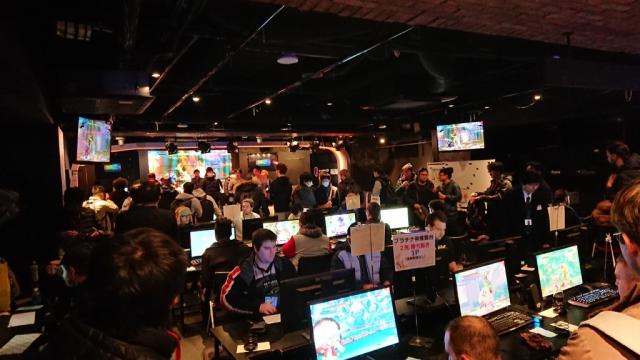As with most competitive endeavours, major events with big names are given a lion’s share of the public’s attention. This tendency is reflected in Capcom’s official rankings for their Street Fighter V circuit, which only tracks results for the tournaments they deem notable. The fighting game community, however, emphasises open pools at every level of competition.
The results of events both large and small are considered vital. A team of Street Fighter fans hopes to further boost regional events and, just maybe, help players and organisers climb upwards with a results database called the Local Fighter’s Network.
The project is still in early stages, but as for its long-term goals? “The honest answer is that I don’t know yet,” Joe Munday, the head moderator of the Street Fighter subreddit and mastermind behind the Local Fighter’s Network, told Kotaku.
“What I can tell you is that I’ve spent a lot of time thinking about high school sports, minor leagues, and the systems already in place for a kid to grow up playing basketball and be able to clearly see a potential path to the NBA.”
At the moment, the fighting game scene doesn’t have any similar avenues in place, and a tool like this one could help fill that gap. Munday’s biggest inspiration is MaxPreps, a CBS-owned database that allows American high schools to submit rosters, schedules, results, stats, and more for everything from basketball to field hockey.
This tool is then used by aspiring athletes and their parents to choose the school that best fits their needs, as well as recruiters looking for the next crop of prospects for collegiate sports. Nothing like MaxPreps currently exists in competitive gaming, but Munday is hoping to bring a little bit of its functionality to serious Street Fighter play.
The fighting game competitive scene tends to be amorphous and adaptive, with different scenes evolving as game releases gain and lose popularity. Players doing well now won’t necessarily remain on top when their favourite game is updated or replaced by a sequel (“In four years there won’t be a ‘Hockey 2’ which splits the player base and all sponsors drop out from Hockey,” Munday joked).
Local events tend to wax and wane in popularity, too, apart from coastal pillars like Wednesday Night Fights and Next Level Battle Circuit.
As such, Local Fighter’s Network relies heavily on self-reporting by community members themselves so that players can have an idea of which events continue to host regular meetings and which have fizzled out.
“I realise how ambitious this sounds,” Munday added. “It’s worth pointing out here that MaxPreps is owned by CBS Interactive and has a number of sponsors. I remember back to playing baseball in my youth, where our team was sponsored by the local trash disposal company. I want that for the fighting game community. I think that creating a network of locals can play an important role in making sure that locals and players are properly supported.”
The obvious downside in asking tournament organisers to self-report results is that many don’t seem interested in actually doing it. Munday explained that while the initial response to his Local Fighter’s Network was positive, only six events have been recorded in the two weeks since its launch. He understands that the barebones presentation and extra work might be a turn-off, but he takes heart in how well the project has been received early on.
The next step is finding a way to make the information presentable and the network self-sustainable. For the moment, all of the pressure of getting the network off the ground lies on Munday and his partners, fellow r/StreetFighter moderators QuasimodoX and mellowDIGITAL.
Unlike existing community-run databases—SRK Rankings and FGC Battles chief among them—Local Fighter’s Network will explicitly avoid reporting on major events, such as those on the Capcom Pro Tour. Where those sites work from the top down, Munday explained, Local Fighter’s Network plans to “build from the bottom up.”
That said, he’s kept an eye on where those projects have succeeded and is open to collaboration if his own network significantly expands.
Local Fighter’s Network is all about supporting the fighting game community at the grassroots level, and Munday hopes that support will trickle upward to affect every facet of competition.
Players can use the service to find locals and promote themselves, tournament organisers can easily track results over a long period of time and coordinate with other events in their area, commentators at major events like Evo can pull information from the database for lesser-known players, sponsors can recruit talented competitors to their rosters, and developers might be able to gain a deeper understanding of how their games perform outside of the most notable tournaments when it comes time to drop a new balance patch.
“At the end of the day, I just want more people to enjoy fighting games,” Munday concluded, “and I think that having a Local Fighter’s Network will help serve that goal.”

Comments